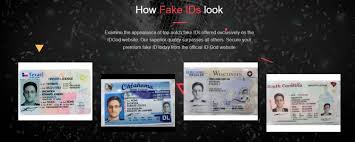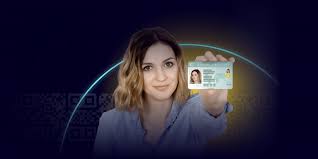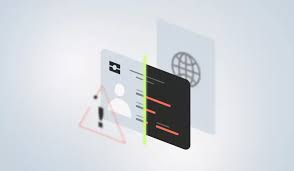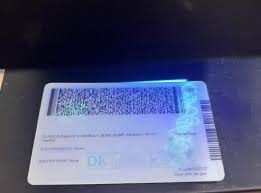How do fake IDs get caught?
Introduction
In today's world, fake IDs are becoming more sophisticated, making it harder for authorities to detect them. Despite this, law enforcement and various industries have developed multiple ways to catch fake IDs. But how do fake IDs get caught? This article will explore the various methods used to detect counterfeit IDs and examine how these methods can prevent the misuse of fraudulent identification.

What Is a Fake ID?
Before delving into how fake IDs are caught, it’s essential to define what constitutes a fake ID. A fake ID is a form of identification that has been falsified or altered to misrepresent an individual's identity. These IDs are often used by underage individuals to purchase alcohol, access clubs, or even commit identity theft. Counterfeit IDs can range from simple photo manipulations to highly sophisticated forgeries that closely resemble legitimate government-issued identification.
Common Ways Fake IDs Get Caught
1. Advanced Scanning Technology
One of the primary ways that fake IDs get caught is through the use of ID scanners. Many businesses and law enforcement agencies use these advanced devices to verify the authenticity of IDs. These scanners can check barcodes, magnetic strips, and holograms that are difficult to replicate on a fake ID. Additionally, they cross-check the information against official databases to ensure everything matches. If the information doesn’t align, the fake ID is flagged.
2. UV Light Detection
A common method used to catch fake IDs is by using UV light detection. Many real IDs have UV-sensitive features that are not visible under normal light. When placed under a UV light, legitimate IDs will display certain patterns, colors, or symbols that fake IDs may lack. This method is highly effective for spotting fake driver’s licenses or fraudulent state IDs.
3. Holograms and Microprinting
Another way counterfeit IDs are identified is by closely examining the holograms and microprinting on the card. Legitimate IDs are often embedded with holographic elements that are incredibly difficult to replicate accurately. Similarly, microprinting — very tiny text or images — can be checked with magnification tools. Many fake ID creators overlook these small but crucial details, leading to the ID being caught.
4. Human Error in Fake ID Production
Even though modern fake ID makers use advanced technology, human error can still cause fake IDs to get caught. Small mistakes, such as incorrect fonts, improper spacing, or wrong colors, can quickly alert bouncers or law enforcement officers. Experienced bartenders and other professionals trained in spotting fake IDs can often recognize these subtle flaws.
The Role of Law Enforcement in Catching Fake IDs
Law enforcement agencies play a significant role in combating the use of fake IDs. Not only do they use the aforementioned technologies, but they also conduct undercover operations to catch vendors who create and sell fake IDs. Furthermore, many local police departments work closely with businesses to provide training on how to spot fraudulent IDs.
In addition, many states have started using real-time verification systems that allow officers to immediately check the validity of an ID. This technology is particularly helpful during traffic stops or when ID holders are suspected of criminal activity.
Industries Affected by Fake IDs
Fake IDs have a wide range of uses, and several industries are particularly affected by them:
1. Nightclubs and Bars
Perhaps the most common use of fake IDs is in bars and nightclubs. Underage individuals often use them to gain access to age-restricted venues or purchase alcohol. Bouncers and bartenders are typically the first line of defense in identifying fake IDs, and many are trained to spot counterfeit features.
2. Retail Stores
Fake IDs are also used in retail environments, especially for purchasing age-restricted products like tobacco, alcohol, and even firearms. Many stores now use ID scanning technology to minimize the risk of selling to someone with a fake ID.
3. Financial Services
In more serious cases, fake IDs are used for identity theft and fraud in the financial industry. Criminals may use counterfeit IDs to open bank accounts, apply for loans, or engage in credit card fraud.
How to Avoid Using a Fake ID and the Legal Consequences
It's important to note that using a fake ID can lead to serious legal consequences. Depending on the jurisdiction, the penalties for using or creating fake IDs can range from hefty fines to imprisonment. Many countries have zero-tolerance policies, especially for minors caught using fake identification.
If you suspect that an ID might be fake, whether you're a bouncer, business owner, or even a fellow consumer, it’s always wise to report it to the authorities. Taking proactive measures can help reduce the prevalence of counterfeit IDs in circulation.
Conclusion
So, how do fake IDs get caught? The answer lies in a combination of advanced technology, human intuition, and law enforcement efforts. As counterfeiters become more sophisticated, the methods for detecting fake IDs must evolve as well. Whether through scanning devices, UV light detection, or simply the experience of trained personnel, there are numerous ways to catch fake IDs before they can cause harm. Remember, using a fake ID isn’t just risky—it can lead to severe legal consequences that far outweigh the short-term benefits.
 MinnesotaFake ID
MinnesotaFake ID
 KansasFake ID
KansasFake ID
 NevadaFake ID
NevadaFake ID
 IllinoisFake ID
IllinoisFake ID